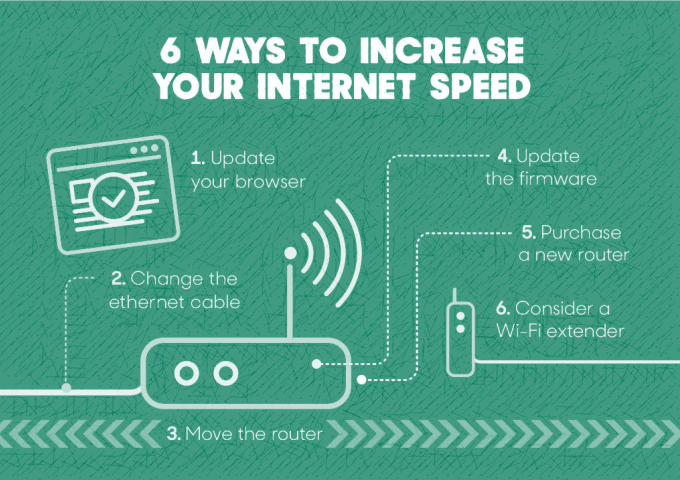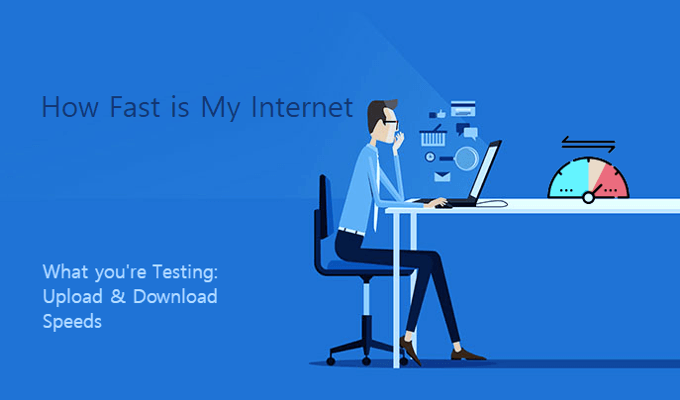
No one likes slow internet, we all want good internet speed. Is your internet speed fast enough? What is good internet speed? Follow this guide to learn about your internet speed and how to improve the performance of the Internet for faster loading, higher resolution video streaming and better surfing experience.
What is internet speed
Internet speed is measured by the amount of data downloaded or uploaded per second
Download speed measures how fast data is transferred to your home network, and you can use it to perform streaming TV, download music, and browse social media. Upload speeds can be used for video conferencing and uploading large files to a server or cloud.
There are several ways to measure Internet speed, but most of the ratings you see are Mbps.
- 1 Kbps (1 kilobit per second) is the slowest speed grade used.
- 1 Mbps = 1,000 Kbps. This is the most common speed measurement you can see in the test results.
- 1 Gbps = 1,000 Mbps. This measurement is associated with a high-performance network.
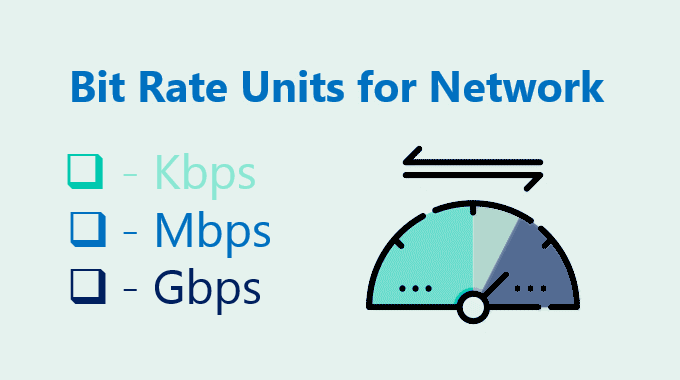
How to test your internet speed
Internet speed testing is the best way to understand the speed of your connection. There are many internet speed test sites that will do it for you in a few minutes, like Speedtest and SpeedOf.Me.
The speed test measures your ping, download and upload speeds. When you run the speed test, you will see the ping measurement, which is basically your Wi-Fi response time. Ping is measured in milliseconds, so a lower number is good news.
For download and upload speeds, the higher the rating, the faster the internet.
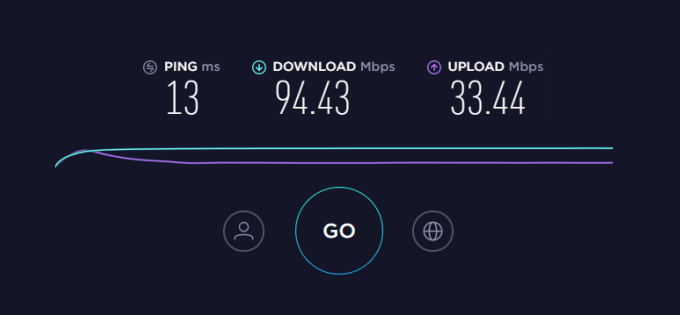
For the most accurate results, stop streaming services and downloads on other devices using your network. If you are connected to a Wi-Fi network, get closer to the router or plug in an Ethernet cable. If your router has a built-in speed test, use that instead of a browser test.
What is a good internet speed?
What is good internet speed? The answer to this question depends on what you plan to do on the Internet. The following sections provide examples of the speeds required for different tasks.
• 1-3 Mbps: Enough for surfing the web, email, social, casual online games and email. However, this is not suitable for video streaming.
• 3-4 Mbps: This is the minimum speed for standard video streams from services such as Netflix. For a stand-alone home, this speed may be sufficient, but now there is all available HD content on the web, which will result in continuous video buffering.
• 5-10 Mbps: 5 Mbps is the benchmark speed required for HD content, especially if you have multiple connected gadgets in your home, it can still cause buffering.
• 10-20 Mbps: This is the lowest speed to achieve a consistent and reliable Internet experience. If you continue to download files from the web and cloud storage services, please at least get a plan with this ad speed.
• 20 Mbps and higher: Households with multiple computers and gadgets, video streaming services, smart devices and simultaneous users should have at least a 20 Mbps plan.
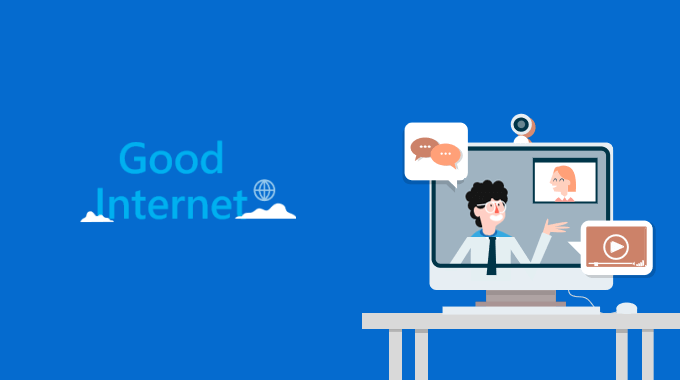
What is considered a fast internet?
Internet download speeds of 100 Mbps or higher are often considered fast Internet because they can handle multiple online activities for multiple users simultaneously without disruption.
Upload speeds of 10 Mbps or higher are generally considered to be fast Internet speeds for uploading because they can easily handle common uploading activities for regular users.
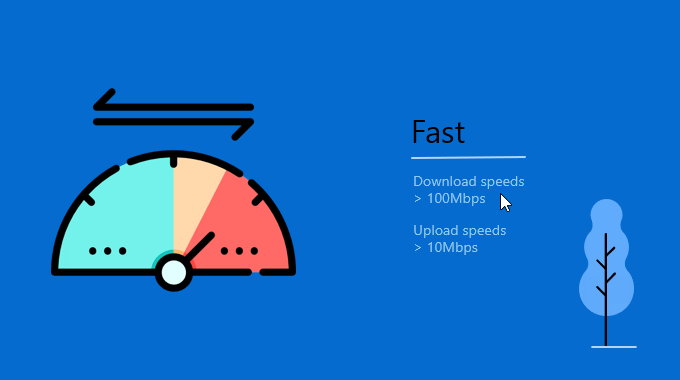
What is considered a slow internet?
Downloads below 25 Mbps are considered a slow internet. With these speeds, users may experience buffering when streaming video, difficulty connecting multiple devices, and other Internet connectivity issues.
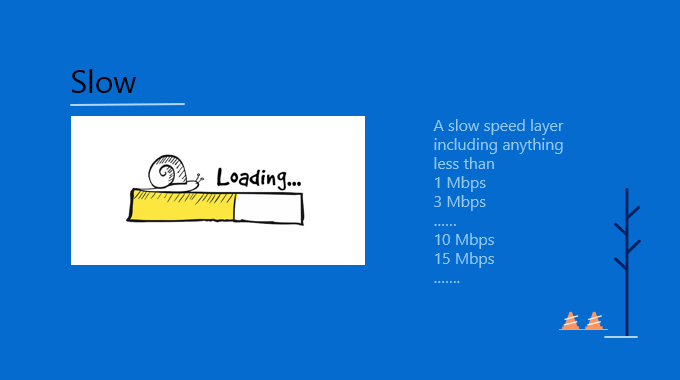
What is the impact on network speed
Although your internet speed depends on the cost you pay, usually the pricier the plan, the faster your internet should be. There are many things that can affect actual internet speeds and performance, such as the device you are using, the website you are visiting, the number of users on the local network, the presence of the virus, and even the weather may affect your network speed.
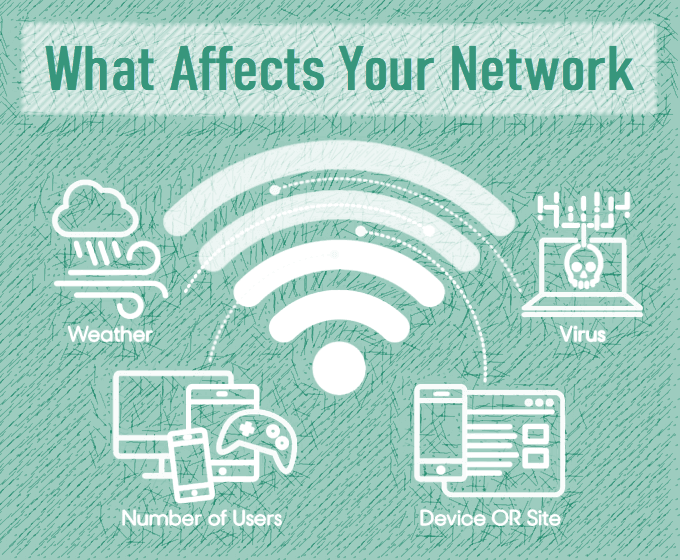
1. The device
The network speed will be slower than normal if you are using old network cables, hard-to-operate routers or modems, or laptops or mobile phones.
2. The website
If you experience a slower load time on your Facebook account but everything else seems fine, it may not be your internet speed. The best way to rule out this is to try to visit other sites. If you find that image-intensive websites like Imgur load much faster compared to text-intensive Reddit, then you know this may not be your connection problem.
3. The number of users on the network
The average wireless router can support up to 250 devices. In other words, unless you are a gossip, you should never try brute force. And, keep in mind that the more traffic you add to your network, the slower your Internet will be.
4. Virus
If you are experiencing slowness on your desktop PC or laptop, you should consider the possibility of a computer virus. These malicious programs can be rented for free on your computer, taking up resources and performing tasks in the background that can slow down your computer. We recommend that you scan your computer every day and that there are many free, reputable antivirus programs to consider.
5. The Weather
Some weather factors like rain, temperature, humidity, and the electrical storm are most likely to affect your WiFi signal. Among the common weather conditions, rainfall affects the WiFi signal the most. Because the radio frequencies are absorbed and partially blocked by rain droplets. So, if you’re using a public WiFi signal that is light-pole-based, you’re most likely to experience interrupted signals on rainy days. However, this doesn’t have much impact on your wired network.
